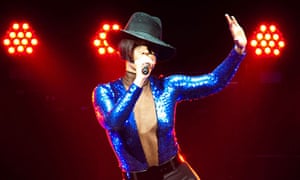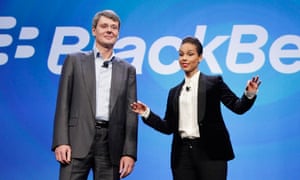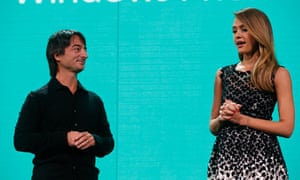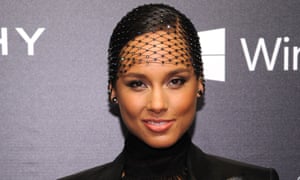‘We can no longer afford to be this cruel to our young’ singer-songwriter tells congressional staffers at event with Senator Cory Booker and activist Van Jones
Keys said of the US criminal justice system: ‘People are not assumed to be innocent, they’re assumed to be guilty.’ Photograph: Jackie Brown/Splash News/Corbis
On Monday, the singer-songwriter Alicia Keys chose a decidedly low-key way to do this, delivering an impassioned plea to staffers on Capitol Hill, where Congress is weighing landmark legislation to reform the criminal justice system.
Keys spoke not as the recipient of multiple Grammy awards, nor as an international superstar of more than a decade. She addressed the crowd as a mother.
Keys had just arrived from Baltimore, where protests were sparked earlier this year after Freddie Gray, an unarmed 25-year-old black man, died in police custody. Keys had spent hours on Monday meeting the families of those who had been incarcerated, in some cases parents who saw their children tried as adults at ages as young as 15.
“Nowhere in the rest of the western world are juveniles being tried as adults, or even worse, sentenced to life sentences without parole,” she said. “Is this who we are now? Is this who we want to be?
“These are just regular boys and girls, trying to find their way.”
Joining Keys were Senator Cory Booker, one of the leading proponents of criminal justice reform, and civil rights activist Van Jones. Booker, from New Jersey, is a member of a bipartisan Senate group that in September reached a compromise that aims to lower mandatory minimums for non-violent drug offenders and reform a justice system that disproportionately impacts minorities, particularly African Americans.
In an interview with the Guardian after the event, Keys underscored the urgency of the moment following a year marked by national demonstrations over race relations and the rise of the Black Lives Matter movement.
“We need to take that momentum and utilize it,” she said. “We’re losing lives, stopping lives.”
Reflecting on her meetings in Baltimore, she said she had been struck by the different trajectories among the youth she encountered.
One young man had been given the opportunity to go to a high school that propelled and supported him, turned around his grades and helped him become the first member of his family to go to college. One girl had gone to prison when she was 14.
“It’s the opportunity or the lack of that makes all the difference in the world,” she said. “It really has the potential to change everything.”
Last year, Keys launched the We Are Here movement, to push for social justice on a wide range of national and international issues including racial inequity in the US. She has also supported Cut50, an organization co-founded by Jones that seeks to reduce the prison population by 50% over the next 10 years.
On Capitol Hill, Keys urged attendees to sign an online petition that would be delivered to the White House once it reached 1m signatures.
Criminal justice reform was “extremely urgent”, she told the Guardian, pointing to a limited window of time to mount pressure on lawmakers. Asked how escalating tensions between police officers and minorities factored into her message, she said it was no surprise that communities of color lacked trust in law enforcement.
“One of the most important things that I saw [in Baltimore] was people are guilty before they’re even proven innocent,” Keys said. “They’re not assumed to be innocent, they’re assumed to be guilty.
“Who would have trust when you’re attacked, and when you’re not given the opportunity to express yourself? When you’re just automatically judged that you’re there doing something wrong, whether you are or not.”
She expressed a similar message in her formal remarks, emphasizing the need to show more compassion toward minority youth.
Every teenager makes mistakes, Keys pointed out. She certainly did, she said, as had everyone gathered in the room when they were teenagers. Keys recounted stories she had heard of those who grew up in environments in which one mistake could change an entire life.
“Fourteen years old and tried as an adult. Sixteen years old and tried as an adult,” she said. “We can no longer afford to be this cruel to our young ... It’s heartless.”
The criminal justice bill in the Senate, which cleared a committee vote last month, will not resolve every problem. But it would be the most significant federal action in decades. It also has the backing of the White House, where Barack Obama has made criminal justice reform a pillar of his second-term agenda.
Booker said Keys and others like her could play a “very powerful role” in helping to bolster the message, drawing on the involvement of artists like Harry Belafonte and Dick Gregory in the civil rights movement of the 1960s.
Booker told the Guardian the proposed criminal justice reforms would save billions in taxpayer dollars, lower crime and, more importantly, elevate potential in communities most deeply impacted by tough-on-crime laws.
“We are conducting our criminal justice system in a way that is incredibly expensive, it’s not making us more safe, and it’s just destroying human potential,” Booker said.
Booker said he was pleased by the rare consensus across both parties in favor of reforming the system, but cautioned against complacency.
“This will be a long road. It’s going to be an every single day effort,” he said. “And we’ve got to keep the pressure on.”


















